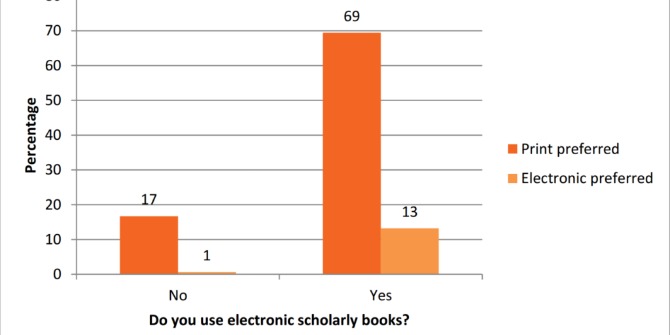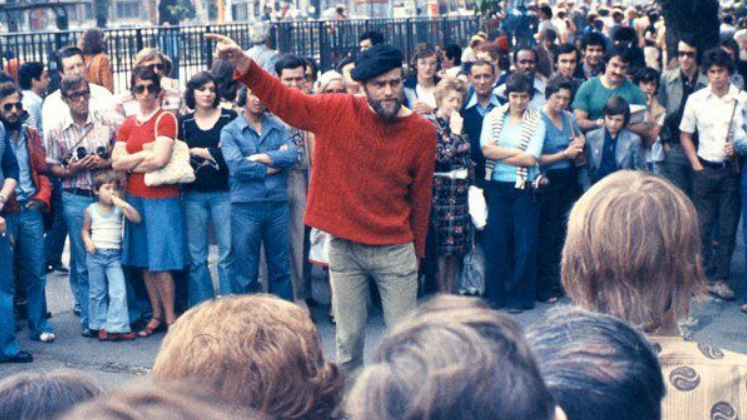Societal impact has become the hallmark of high quality research, as is reflected in the decision to make impact worth 25% of REF 2021 assessments and the introduction of Research Missions into the Horizon Europe framework. However, the ability to produce societal impacts is often linked to career stage and job stability. Reporting on a survey of Early Career Researchers (ECRs), Corina Balaban and Paul Benneworth highlight key structural barriers that limit the impact of ECR research and argue for the need to introduce an ethos and long term vision to deliver impact in higher education organisations.
The creation of societal impact from research activities is seen as an increasingly important component of what is considered to be “good” research. However, Early Career Researchers face particular challenges when it comes to creating societal impact. Whilst there is a need for ECRs to understand how their research can create impact in the societies that fund them, our research suggests that impact is not only the responsibility of individual researchers: research organisations and research systems also need to create career structures that support impactful research.
As part of the CARES project (Careers and Research Evaluation Systems for societal impact) and the European Network for Research Evaluation in the Social Sciences and Humanities (SSH), we decided to explore attitudes towards societal impact amongst ECRs – defined in this study as individuals who finished their PhDs within the last eight years – with the ultimate aim of identifying and improving pathways to impact for ECRs. To do this, we developed a questionnaire that was distributed to early career researchers in SSH, focusing on their beliefs, activities, perceptions, motivations and the obstacles they face when seeking to create impact with their research. In total 100 questionnaires were completed by ECRs in SSH from 29 countries across Europe.
What we found was, that despite social sciences and humanities ECRs from across Europe being highly motivated to engage with societal partners, these aspirations are often undermined by structural and organisational barriers that inhibit ECRs from producing impactful research.
An intrinsically motivated cohort
The vast majority of respondents thought the societal impact of research to be important. Their responses articulated a sense of it being their public responsibility to engage and give something back to the community; this was especially the case for those who were funded with public money and thought it was their moral duty to do so. Common responses ran: ‘public money should be used for activities with societal benefit’, ‘it is my responsibility as a researcher’ and ‘it is a way for researchers to feel legitimate in society’; they also articulated the need to ‘demonstrate the value of academic research to the public’.
Most respondents wanted to achieve positive change through their research, whether this was improving people’s lives in a direct way (such as empowering marginalised groups), or simply contributing to general societal wellbeing. Another key motivation to engage was to sustain democracy by informing public debate, as well as creating awareness around current issues (such as countering fake news).
Instability as a barrier to impact
However, although respondents were highly motivated to engage, many reported structural barriers that prevented them from effectively engaging with societal partners. The most common de-motivator was seen to be the academic career and incentive structure. Many ECRs felt pressured to prioritise academic publications over other engagements, in order to advance on the academic ladder, or, in most cases, to secure the next short-term employment contract. A number reported that so-called ‘popular’ research was often perceived as ‘not serious’ enough by the academic community.
The frequent relocation that some of these temporary jobs entailed also meant that that it was hard to develop and maintain the networks of local stakeholders necessary to deliver certain kinds of societal impacts. Geographical mobility and displacement also meant that ECRs sometimes did not have the language skills, or expertise, required to participate in local and national debates.
An additional barrier was that stakeholders were often not responsive to the research that ECRs were doing. Some respondents maintained that, as junior researchers, they were not given enough credibility, and that they were: ‘just PhD student[s] in the eyes of decision-makers’. Linked to the junior status was also a lack of confidence to go public with their own research results.
Furthermore, social impact was considered by many to be an ‘add-on’ to the real business of research that required extra time, as well as additional training, support and incentives.
In short, all these barriers contributed in some way to creating unstable academic identities: impact was not well integrated into the long-term career progression of ECRs; there were conflicting demands and expectations around impact and its perceived value; and, barriers were created by physically dismantling the researchers’ geographical continuity in local communities.
Embedding impact into research organisations
Our research highlights the fact that there is a link between motivation and identity for creating impact; researchers that reported being motivated to create impact had stable academic identities where impact played a constructive role.
These academics operated in stable environments, in which they were comfortable dealing with change and the social responsibilities that come with it. They were also able to engage critically in public discourse and impact focused work with the expectation that they would be supported and recognised by their organisations for doing so.
If the untapped potential for ECR impact is to be unlocked, then alongside short-term solutions, such as providing training and time for individual researchers to create impact, there need to be long-term actions to encourage early career researchers to develop stable engaged identities.
They also need to receive positive peer signals regarding what constitutes ‘good impact’. These signals could come from more senior academic colleagues, but also from the wider Higher Education system, in the form of incentives and support structures designed with a long-term view towards the academic, social and personal development of ECRs.
Evaluation systems, such as the UK’s Research Excellence Framework or Norway’s Impact case studies, can play an important role in this, by helping to provide these stimuli, as long as these evaluation approaches focus on acknowledging the range and diversity of value signals that demonstrate that impact matters to societal partners. Our research also raises questions about how we measure impact, in particular, how these measures can be adequately tailored for different career stages.
We recommend that societal impact becomes more embedded in the higher education system as a whole, not so much as it currently is, in the form of short-term individual projects, but rather in the form of a long-term academic ethos, or code of practice. Within this proposed framework, impact would be supported, valued and rewarded at every career stage as part of an ongoing, stable academic effort to contribute to societal well-being.
Note: This article gives the views of the author, and not the position of the LSE Impact Blog, nor of the London School of Economics. Please review our comments policy if you have any concerns on posting a comment below.
Image Credit: Ahmad Odeh via Unsplash (Licensed under a CC0 1.0 licence).








